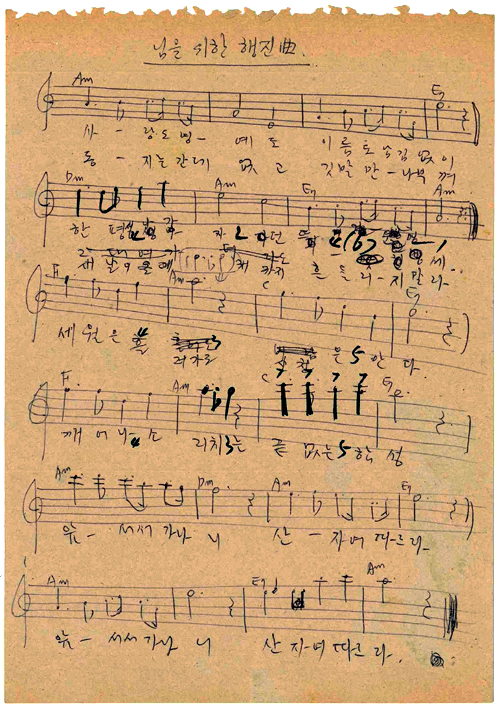One of the numerous peculiar features in communist thoughts is the idea of ‘exporting’ revolutions to other countries. As if revolution itself is a kind of commodity.
As we all have witnessed, it didn’t gone well in the end. There are handful of self-proclaimed communist governments while virtually none of them attained the state of true communism. The Soviet Union promised its people to achieve it by 2000 but well.
Looks like it goes the other way around in the East Asia nowadays. Not from communist states to yet emancipated states but from liberal societies to authoritarian societies. Revolutions are being exported anyway.
Although in a much lesser degree of spectacle than K=pop and other hallyu phenomena, one I’d like to call (clumsy but catchy) K=revolution has been happening during this recent decade.
And here’s one spectacle of it:
March For Love has a status of national anthem among South Korean civil rights activists. Originally written in 1981 in remembrance of a protester who was killed by security forces during the 1980 Gwangju Uprising, the song quickly became a symbol of Korean activism and has been sung in every occasion of activism since then.
After the authoritarian regimes who banned the song in public fell down, you would see Presidents singing the song in memorial ceremonies:
How did the song find its way to Hong Kong? Surprisingly, it seems to have happened a long ago.
Professor of Sociology at the Seoul National University Jung Geun-sik wrote that it was first introduced in Hong Kong, 1982 through Christian student activists who enjoyed wide international connections including South Korean.
Later, especially after the 1989 Tiananmen Square protests, the song’s context transmuted into labor activism which paved a way for the song into the labor activist scene in Taiwan. The title also went a transmutation, from March For Love爱的征战 to Worker’s Fight Song勞動者戰歌
China was the latest in this trend. Prof Jung reported an art troupe of the farmer/worker’s organization Beijing Workers’ House released a 2005 album which includes Chinese adaptation of the song.
This is not just about one song. Student activists in China are known to have read a lot about the history of Korean labor activism including the biography of Jeon Tae-il who set himself on fire in protest of poor condition of Korean workers in 1970.
Furthermore, many Chinese people on the web keep talking about the Korean films on the history including 1987, Taxi Driver and The Attorney despite the censor.
The revolution may not be televised, but some aspects of it might have been seen on the web.

Leave a Reply